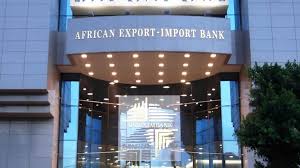The African Export-Import Bank (Afreximbank) has announced it facilitated a record USD 32 billion in international trade payments for Ethiopian businesses in 2024, through its AfPAY Trade Payment Services platform. The figure highlights the increasing dependence on the pan-African financial institution by Ethiopian enterprises navigating complex global markets.
This development was the centrepiece of the Afreximbank Ethiopia Roadshow 2025, a two-day event held at the Hyatt Regency in Addis Ababa, themed: ‘Empowering Ethiopia’s Growth: Catalyzing Trade, Investment, and Industrialization Through Tailored Afreximbank Solutions’.
Leading the bank’s delegation was Professor Benedict Oramah, President and Chairman of the Board of Afreximbank, who reiterated the bank’s commitment to supporting African businesses through custom financial solutions tailored for cross-border trade and industrial growth.
The bank, which was established in 1993 to promote intra- and extra-African trade, has significantly scaled up its engagement in Ethiopia. Afreximbank data shows that in the last five years alone, it has channeled over USD 4.7 billion in trade transactions through its AFTRAF (Trade Facilitation) programme via Ethiopian financial institutions. However, the USD 32 billion facilitated in 2024 alone through AfPAY signals a rapid acceleration in the bank’s role in Ethiopia’s international trade ecosystem.
The Addis Ababa roadshow, organised by the bank’s East Africa regional office based in Kampala, Uganda, brought together Ethiopian policymakers, private sector leaders, and development partners. Presentations showcased financial products for strategic sectors such as manufacturing, agribusiness, infrastructure, and energy.
Key speakers included Fikadu Digafe, Vice Governor of the National Bank of Ethiopia, and Eric Monchu, Acting Group Managing Director for Client Relations at Afreximbank. Both highlighted the importance of unlocking new capital flows and promoting trade through strategic partnerships with institutions like Afreximbank.
The event also featured the launch of the Afreximbank Trade Gateway (ATG)—a digital platform designed to enable real-time cross-border B2B trade, settlement in local currencies, and seamless integration with the Pan-African Payment and Settlement System (PAPSS).
PAPSS, one of the key innovations under the Africa Continental Free Trade Agreement (AfCFTA), is expected to eliminate currency convertibility barriers that have long restricted intra-African commerce. Million Habte, a coordinator with the AfCFTA Secretariat, noted that PAPSS is instrumental in building a USD 3.4 trillion unified African market for 1.5 billion people.
Although Ethiopia is one of the founding members of Afreximbank, it does not yet host a regional office. Current regional hubs are located in Egypt, Uganda, Zimbabwe, Cameroon, Nigeria, Côte d’Ivoire, and Barbados, serving sub-regional operations in Africa and the Caribbean.
Nevertheless, Afreximbank maintains that Ethiopia remains a strategic economic frontier. The country’s economy is projected to grow by 6.5 percent in 2025, backed by strong public investment in infrastructure and agriculture, growth in light manufacturing, and sustained inflows of foreign direct investment (FDI).
According to Afreximbank, Ethiopia’s trade boom is being driven by:
Public infrastructure development
Service and manufacturing sector expansion
Telecoms liberalization
Increased participation in regional trade agreements
“Afreximbank seeks to expand its engagement beyond just the financial sector,” the bank said in a statement. “We are unlocking development potential by working directly with the private and public sectors to introduce innovative, tried-and-tested financial solutions.”
The bank’s roadmap includes broader collaboration with agribusinesses, tourism developers, energy players, and industrial exporters to further integrate Ethiopia into the regional and global trade system.
The success of Afreximbank’s interventions in Ethiopia demonstrates the rising demand for Africa-led financing solutions that can withstand global shocks while catalysing growth, industrialisation, and trade competitiveness across the continent.
